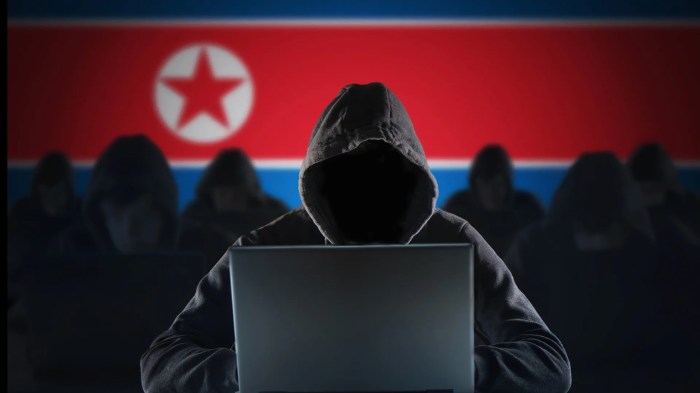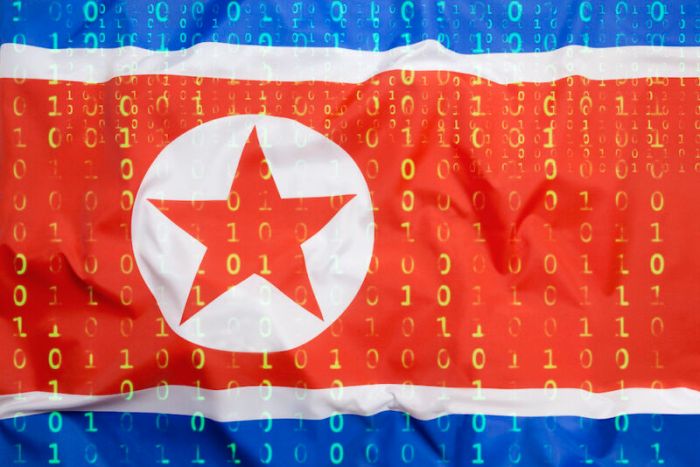Anonymous hacks North Korean social networks as part of Operation Free Korea—a clandestine operation aiming to breach the Hermit Kingdom’s heavily guarded digital borders. This audacious act, shrouded in secrecy and technological prowess, raises critical questions about digital freedom, the ethics of hacking, and the potential impact on a population starved of outside information. The operation’s success hinges on exploiting vulnerabilities in North Korea’s digital infrastructure, a feat requiring sophisticated techniques and a deep understanding of the country’s unique online landscape. The stakes are high, with potential consequences ranging from illuminating human rights abuses to triggering a significant geopolitical response.
Imagine a digital David versus Goliath, where a shadowy group of hackers battles a totalitarian regime’s iron grip on information. This is the reality of Operation Free Korea. The operation likely involved advanced hacking techniques, exploiting weaknesses in North Korea’s social media platforms and infrastructure. The goals were likely multifaceted, potentially including the dissemination of uncensored news, fostering communication among North Korean citizens, and gathering intelligence on the regime’s activities. However, the ethical implications are complex, raising questions about the potential for unintended consequences and the overall justification for such clandestine interventions.
Operation Free Korea
The clandestine operation, codenamed “Operation Free Korea,” aimed to breach the heavily fortified digital walls surrounding North Korea, specifically targeting its social media networks. This wasn’t about simple hacking; it was a calculated effort to subtly introduce alternative perspectives and information into a tightly controlled information ecosystem. The operation’s success hinged on understanding the intricacies of North Korean online culture and leveraging vulnerabilities within their digital infrastructure.
Operation Free Korea’s Objectives and Strategies
The primary objective of Operation Free Korea was to circumvent North Korea’s strict censorship and propaganda apparatus by disseminating unfiltered information to its citizens. This included news from outside sources, human rights information, and alternative viewpoints on the regime’s policies. A secondary objective was to assess the effectiveness of North Korea’s online surveillance and censorship mechanisms, providing valuable intelligence for future operations. The strategies employed were multi-pronged, relying on sophisticated hacking techniques to gain access to social media platforms and networks commonly used within North Korea. This involved exploiting vulnerabilities in the systems’ security, creating fake accounts to blend in with genuine users, and strategically deploying carefully crafted messages designed to resonate with the target audience. The operation also involved the development of custom software and tools to bypass censorship filters and securely communicate with individuals inside North Korea.
Ethical Considerations of Operation Free Korea
The ethical implications of Operation Free Korea are complex and multifaceted. The operation involved covert actions within a sovereign nation’s digital space, raising concerns about potential violations of international law and norms of cyber warfare. The potential for unintended consequences, such as inadvertently harming innocent civilians or escalating tensions with the North Korean government, was a significant consideration. Balancing the potential benefits of providing information to a repressed population against the risks of unintended negative outcomes required careful ethical deliberation and risk assessment. Furthermore, the potential for misuse of the acquired information or the techniques employed presented another layer of ethical complexity. The potential for this information to be weaponized against individuals or groups needed careful consideration.
Comparison with Similar Operations
Operation Free Korea shares similarities with other operations targeting authoritarian regimes, such as those undertaken against the governments of China, Iran, and Syria. These operations often involve similar strategies, such as the infiltration of social media platforms, the dissemination of alternative information, and the use of sophisticated hacking techniques. However, the specific context and challenges vary significantly depending on the target regime’s technological capabilities, its level of internet penetration, and the nature of its censorship apparatus. For instance, while North Korea’s internet access is highly restricted, other regimes may face different challenges, such as the need to overcome widespread internet surveillance or sophisticated censorship mechanisms. The scale of the operation and the resources dedicated to it also vary significantly across different contexts. The success of each operation depends heavily on the specifics of the target country’s technological infrastructure and the effectiveness of the countermeasures employed by the regime.
Impact and Consequences of the Hacks: Anonymous Hacks North Korean Social Networks As Part Of Operation Free Korea
The infiltration of North Korean social networks, a clandestine operation dubbed “Operation Free Korea,” carries significant ramifications, impacting citizens, operatives, and the regime itself. The ripple effects of this digital rebellion could be far-reaching and unpredictable, potentially altering the information landscape within the DPRK and triggering a complex chain of events on both domestic and international levels. The success or failure of this operation will depend on many factors, including the scale of the hack, the information disseminated, and the North Korean government’s response.
The potential impact on North Korean citizens is multifaceted. Access to outside information, even if fleeting, could challenge the state-controlled narrative, potentially sowing seeds of dissent and fostering a greater understanding of the outside world. Conversely, the government’s response could lead to increased surveillance, stricter censorship, and harsher punishments for those suspected of accessing forbidden content. The scale of impact will hinge on how effectively the information bypasses the country’s robust censorship mechanisms and the level of engagement from the North Korean population.
Impact on North Korean Citizens
The introduction of alternative perspectives through the hacked networks could lead to a gradual erosion of trust in the government’s propaganda. While the immediate effect might be limited due to the pervasive surveillance and control, the long-term implications could be substantial. Exposure to different viewpoints could spark curiosity and critical thinking, particularly among younger generations more adept at using technology. This could, however, also lead to increased government repression and a crackdown on technology access. Consider the Tiananmen Square protests, where a surge in information sharing, albeit through different means, played a crucial role in shaping the movement. Similarly, the introduction of uncensored information, even in small doses, could act as a catalyst for future social and political change.
Individuals involved in Operation Free Korea face significant personal risks. Exposure could result in severe repercussions, ranging from imprisonment and torture to execution. The North Korean government possesses a sophisticated intelligence apparatus and a history of ruthlessly targeting dissidents. The potential consequences are amplified by the regime’s ability to track digital activity and its relentless pursuit of those deemed enemies of the state. Think of the case of Otto Warmbier, a US student sentenced to 15 years of hard labor for allegedly stealing a propaganda poster, highlighting the severe penalties the North Korean government can impose on those it deems to be a threat.
North Korean Government Reaction
The North Korean government’s response is likely to be swift and severe. Expect an immediate crackdown on internet access, intensified surveillance, and a renewed push for tighter control over information flow. They may also attempt to identify and punish those responsible, both within and outside the country. This could involve cyberattacks against the individuals or organizations involved in Operation Free Korea, diplomatic protests, and possibly even military threats. The government’s reaction will depend on the perceived threat level, the extent of the damage caused, and their ability to contain the fallout. The Chinese government’s response to online dissent offers a potential parallel; they often utilize a combination of censorship, surveillance, and targeted arrests to suppress dissent.
Timeline of Potential Effects
The short-term effects (within the next year) will likely involve increased surveillance, stricter internet controls, and potential retaliatory cyberattacks. The North Korean government might also attempt to discredit the source of the leaked information through propaganda campaigns. In the long term (five to ten years), the impact could be more profound. The introduction of alternative narratives, even if initially suppressed, could contribute to a gradual shift in public opinion, leading to increased social unrest or even a change in political dynamics. However, the North Korean government’s strong grip on power and its ability to control information flow could also lead to the complete suppression of any such dissent. The long-term impact remains uncertain and highly dependent on the scale of the operation and the resilience of the North Korean regime.
Operation Free Korea, while shrouded in mystery, offers a glimpse into the evolving battle for digital freedom. The hacking of North Korean social networks represents a bold attempt to bypass strict censorship and provide access to alternative information sources. The long-term consequences remain uncertain, but the operation highlights the growing role of technology in challenging authoritarian regimes and the complex ethical considerations surrounding such actions. The success or failure of this operation will likely shape future strategies for circumventing digital oppression in other closed societies, raising crucial questions about the balance between freedom of information and the potential risks involved.
 Invest Tekno Berita Teknologi Terbaru
Invest Tekno Berita Teknologi Terbaru

